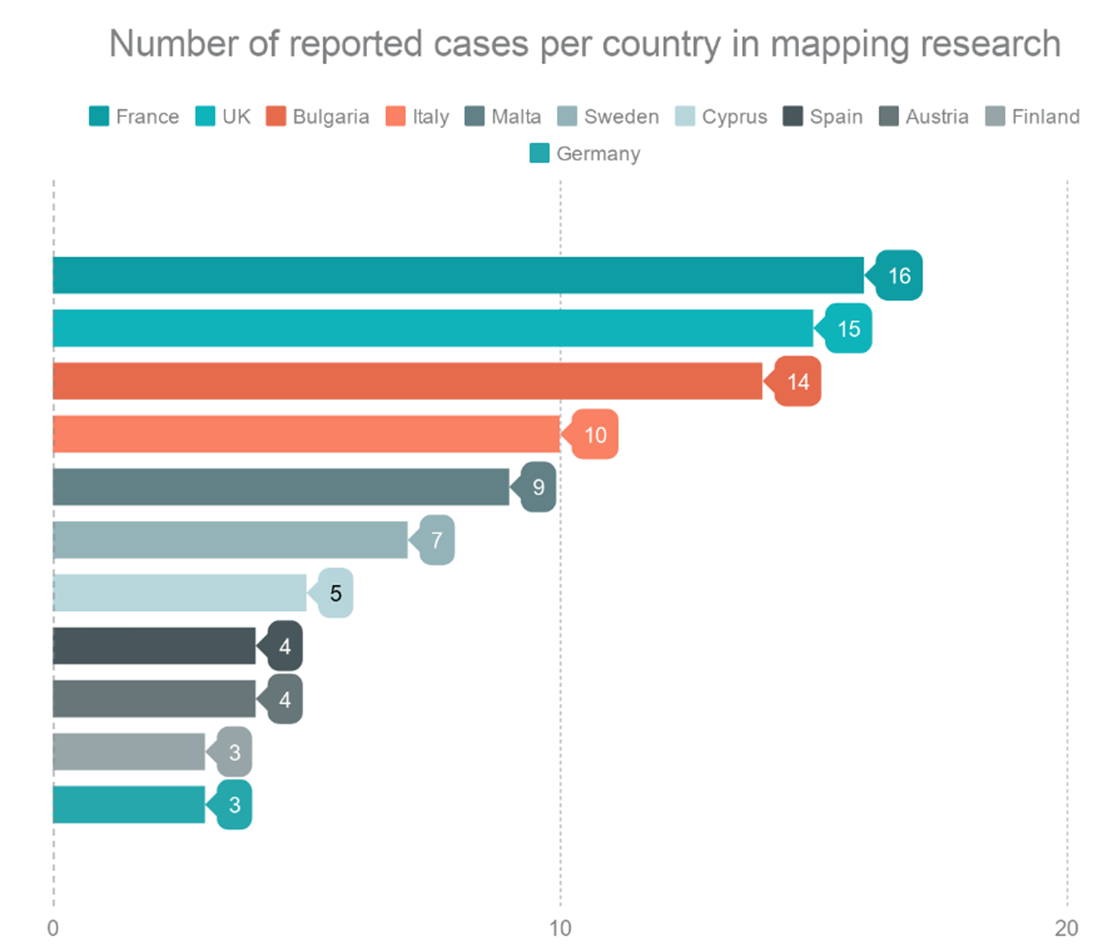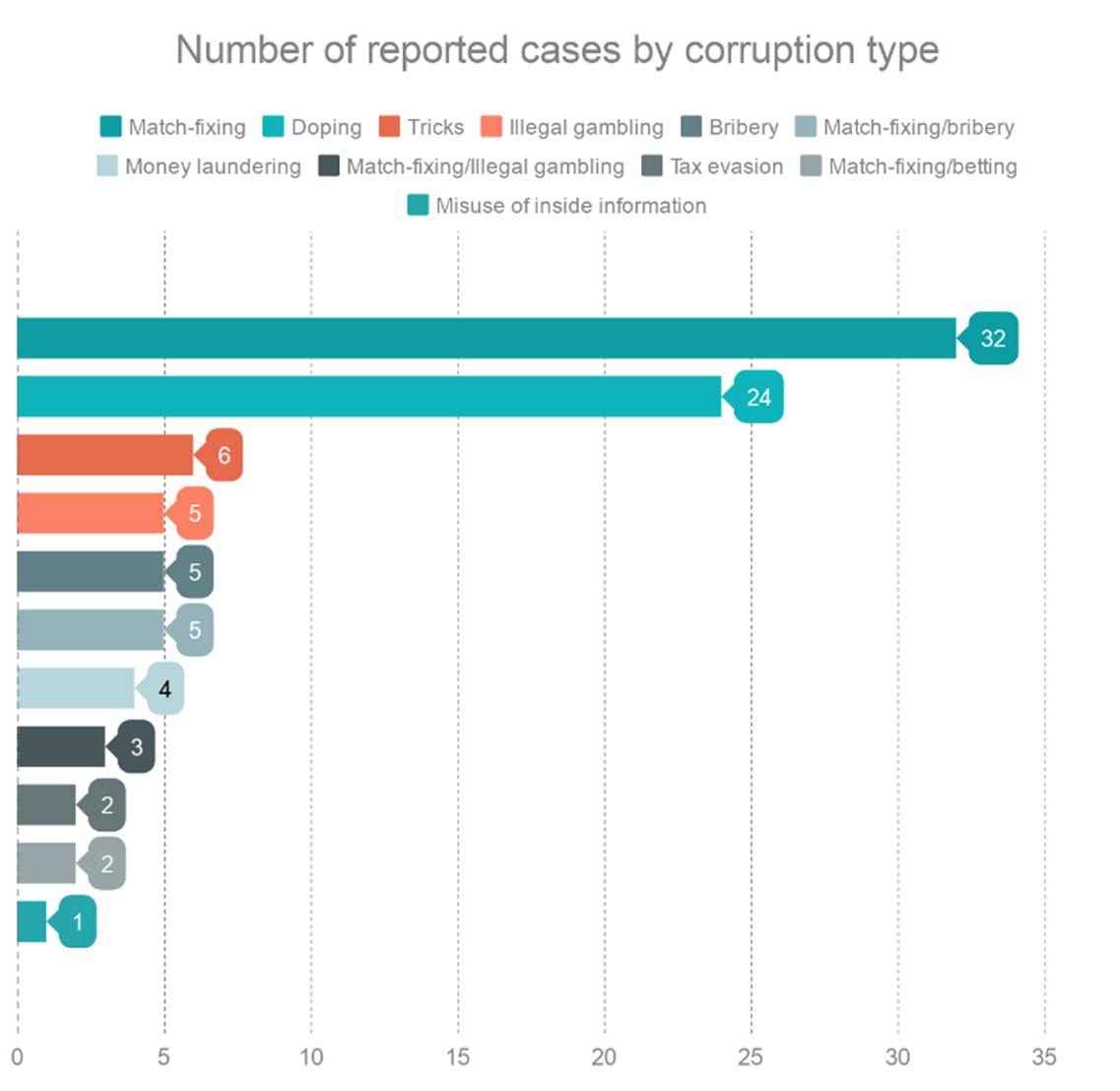Dr Manoli’s report also looked at the four main responses implemented by the EU countries – legal measures implemented by national governments, preventative measures, new organisational structures and collaborative mechanisms – and the impact they had in real life scenarios.
The research highlighted a number of key conclusions with regard to the effectiveness of responses and particular features of promising practices in this area:
- There is evidence that the introduction of stricter legal penalties reduces levels of match-fixing
- There is a need to focus on preventative measures as well as legal penalties
- The role of multi-stakeholder groups for preventing and tackling corruption in sport - (some of the case studies highlighted the potential for involving all relevant actors in addressing specific corruption practices including judicial bodies, government ministries, national sport agencies and federations)
- There is an increasing emphasis on promoting ‘good governance’ practices in sport federations.
However, the study also found that despite the variety of measures that have been implemented in the 11 countries in recent years, the number of reported cases has increased drastically, from just two in 2010 to 17 in 2018.
“Room for improvement”
Dr Manoli has concluded – not only from this report, but the research she has conducted on the topic over the past years – that there is "ample room for improvement" in EU member states’ responses to corruption.
She said: “Despite an increase in the fighting measures, the documented cases of corruption across the EU member states is rising, suggesting that there is still more to be done.
“There was a wide disparity of responses identified among the member states, with Bulgaria and France being particularly active in their fight against corruption in sport.
“While it is not fair to point the finger to any country in particular [in terms of which has the biggest issue with corruption in sport], it is worth bearing in mind that a number of the countries tend to respond to crises, scandals or manifestations of corruption after they occur and rarely before
Dr Manoli also believes one of the main issues is that not enough attention is being paid to less-documented types of corruption.
She said: “A key aspect in this might be that we are indeed focusing on a small number of types of corruption, doping and match-fixing, and thus are ignoring a number of other manifestations that have proven harmful for the future of sport.
“Evidence suggests that there is a shift in the focus of the corruptors that we need to be prepared for.
“These types include, but are not limited to tax evasion, bribery and money laundering, as well as various commercially linked ‘tricks’.
“Understanding these types, the way in which they are organised and how they can be dealt with can assist us in, hopefully, safeguarding the future of sport.”
Recommendations
Dr Manoli recommends the following in her report:
- Information sharing and transparency in the manifestations of corruption
- The introduction and following of a more systematic monitoring system of corruption that is to be shared among different bodies in each nation and internationally
- An evaluation of the impact and effectiveness of the existing responses to corruption in order to access what works and what does not, and therefore improve future actions to fight corruption
- Sharing information on good practices that have proven effective, in order to replicate them among different sports and member states
- Paying closer attention to less documented types of corruption.
Dr Manoli said: “The research findings provide evidence and insights in understanding how the EU could potentially add value to existing initiatives in this area.
“I hope this report will be used by the EU and its member states in informing future policy to fight corruption in sport.”
Mapping of corruption in sport in the EU was presented at the recent Expert Group on Sport Integrity in Cyprus and has been shared with EU member state representatives as well as key organisations such as the International Olympic Committee, FIFA, UEFA, INTERPOL, UNESCO, and the Council of Europe.
The full report can be found here.

